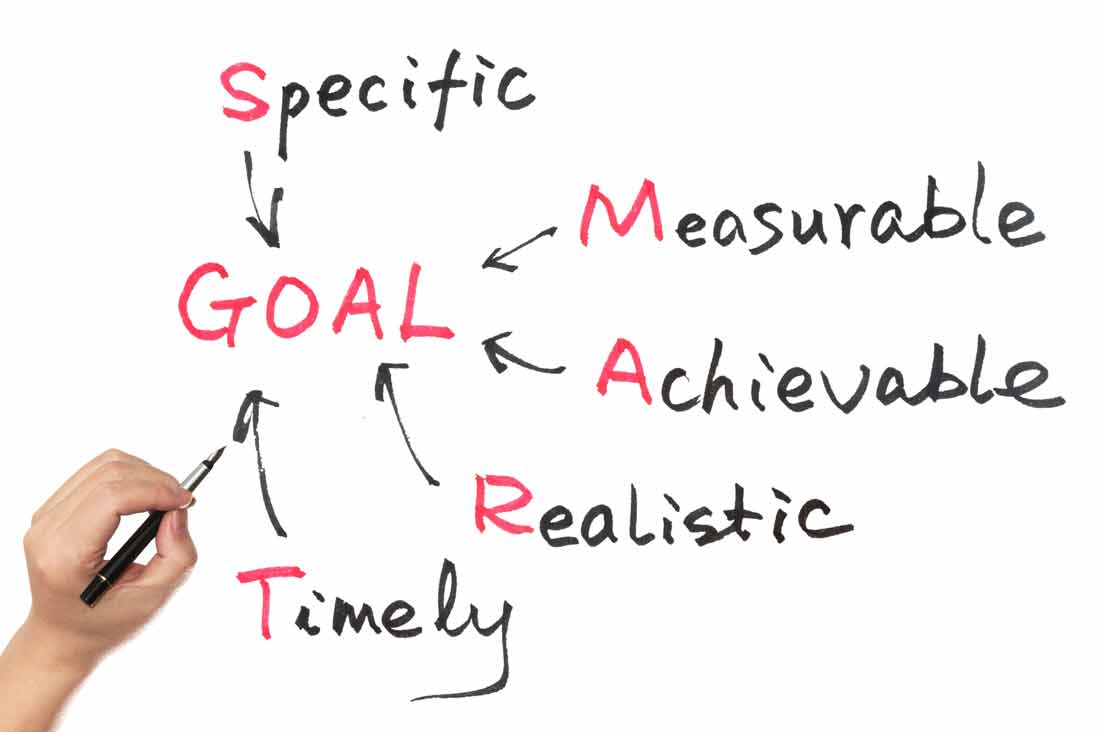Physical Vs Mental Fitness
There is but one way to live life to its fullest- being fit. Understanding the benefits of all-round fitness and knowing how active you should make it easier to improve the overall quality of your life. To help you live better, here’s how you can benefit from mental and physical exercise regardless of your age, sex or physical ability.
When talking about fitness, both mental and physical fitness come into play. More often than not, physical fitness gets plenty of attention, and for a good reason. A healthy body can counter conditions such as heart disease and diabetes, and help you maintain confidence as you age.
However, mental fitness is just as important as physical fitness, and should not be neglected in your self-betterment plans.
Mental fitness means having a brain and emotional health in tip-top shape. It may not necessarily mean training to ace an IQ test, but a series of exercise that helps slow down, decompress and boost a flagging memory.


Aerobics (cardio)
Aerobics involves maintaining an increased heart rate for an extended period of time. Types of cardio exercises include running, swimming, biking, rowing, dancing, and jumping rope.

Strength
Also called Resistance Training. It’s a physical activity with the purpose of increasing muscle strength and mass. Examples include weightlifting, dumbbell and bodyweight exercises.

Balance
This is where you activate your abdominal muscles for stability and control of your body. Balance exercises can include yoga, tai chi and stability ball exercises.

Flexibility
Bragging about how much you can bench is no fun if you have trouble tying your shoes. Flexibility saves you from tight hips, hamstrings, hip flexors and makes you as strong as you can be.

Why you need to be fit and importance of physical fitness
Weight control leads you towards fitness
Along with diet, exercise plays an essential role in managing your weight and preventing obesity. To maintain your weight, the calories you are taking must equal the energy you burn. To lose weight, you must utilize more calories than you eat and drink.
Manage your sugar and insulin levels
Exercise can reduce your blood sugar level and help your insulin work effectively. This can lower your risk for metabolic syndrome and type 2 diabetes. And if you already have one of those diseases, exercise can help you to maintain it.
Feel Happier through fitness
Exercise has been shown to improve your mood and reduce feelings of depression, anxiety, and stress. It produces variations in the parts of the brain that control stress and anxiety. It can also boost brain sensitivity for the hormones serotonin and norepinephrine, which relieve feelings of depression.
Better Mental Health and fitness
Regular exercise can have an extremely positive influence on depression, anxiety, ADHD, and more. It also relieves stress, increases memory, helps you sleep better, and boosts your overall mood. You don’t have to be a fitness fanatic to reap the benefits – browse through our site and discover how to reap these benefits.
How to Achieve Mental Fitness
Be positive with yourself and improve your fitness
Affirmation, or positively talking to yourself, involves strengthening neural pathways to bring your self-confidence, well-being, and satisfaction to a higher level. To start, make a list of your good qualities. Remind yourself that you don’t have to be perfect. Set goals for what you want to make better and start small to avoid becoming confused.
Stop Multitasking
Many think that multitasking enables you to get more things done at once, but it creates more problems than it solves. Focusing on one task at a time will improve your concentration and help you to be more productive.
Try Something Different
New practices can also set you on the way to mental fitness. You can fit new approaches into your daily life by trying new foods, new ways to accomplish routine tasks, traveling to new places or trying a new route to the grocery store.
Read More
Reading is great for your brain. Your brain processes every word you read, including this one. Beyond the mechanics, reading helps you visualize the subject matter on the pages before you, and imagine what voices sound like in the written dialogue.
This can also be a great relaxation technique
Top Fitness Tips for Mental and Physical Exercise.
General physical fitness and targeted exercises to improve stability can prevent falls. But so can staying mentally ready to maintain brain health. A sharp mind helps you to think — and stay — on your feet. Join us and learn to strike a balance.
No Results Found
The page you requested could not be found. Try refining your search, or use the navigation above to locate the post.
150 Exercises You Can Do
As a bonus, we are giving a free fitness exercise ebook to start your healthy lifestyle
Why we should eat less, more often

The Basics: Small frequent meals vs. fewer big meals

But as science continues to evolve, the answer to ‘how many meals you should be eating?’ Is no longer a straightforward one. Newer research suggests that splitting calories among six meals rather than three does not affect metabolic rate and thus has no direct effect on weight loss.
So, if the number of meals you consume has no direct effect on weight loss, should you give up on the idea of multiple mini-meals spaced a few hours apart? Not too soon!
Remember that your best bet is to keep your calories in check, no matter how often you nosh. In fact, Martha McKittrick, a registered dietitian in NYC, agrees that “Some people are grazers by nature whilst others are meal-eaters. It’s fine to graze until you make sure calories are controlled so it’s not an ongoing graze-fest.”
What is the upside of eating more often?

Prevents Hunger
While loading up many meals may not boost up your metabolism or help you burn fat, medical experts say it could help you in other ways.
The longer is the time-space between different meals, the more hungry you get, and you’re more likely to overeat.
“After staying 3 hours without food, your blood sugar level starts to fall down. In the next one hour, your body has already digested almost everything you ate earlier,” shares Cleveland-based dietitian Amy Jamieson-Petonic.
She further adds, “Once you cross the 5-hour mark, there is a steep decline in your blood sugar level, and you tend to munch on whatever you can to refuel your depleting sugar.”
Eating less but more frequently, on the contrary, allows you to feel less hungry to make smart food choices as compared to when you are famished. All in all, you feel more in control when you’re not fighting off huge hunger pangs! (Read our detailed guide to know more about science-based ways to curb your appetite naturally)
Helps maintain Metabolism & Muscle mass
Did you know when we cut down on calories, our bodies react by slowing down the metabolism and using lean muscle mass as a fuel source for energy instead?
However, when people adhering to a lower-calorie diet eat less, more frequently — say five or six times a day— their metabolism is better regulated with lesser in muscle mass.
Why you may ask? It is due to the fact that eating frequently boosts metabolism slightly as the digestion of food leads to the burning of calories. As a result, one has a well-maintained muscle mass and an optimized metabolism that play an indispensable role in weight loss and overall health.
Help keep blood sugar stable
While eating big meals leads to rapid highs and lows in blood sugar levels, smaller and more frequent meals can actually help you stabilize blood sugar levels throughout the day!
When you eat several smaller meals rather than eating two or three large meals by the clock, your blood sugar level remains more stable— simply because you are not putting large chunks of food followed by hours-long breaks without food that lead to a steep decline in blood sugar.
Eating more frequently keeps your blood sugar stabilized for longer, energy-levels more constant throughout the day, whereas minimizing sugar cravings by manifolds. On top of all, eating less but more often seems to be particularly helpful for women, who report feeling less hungry, less moody and more active when they eat throughout the day.
How often should you eat?
The best way to determine the optimum frequency of eating is to keep a close vigil at your schedule and maintaining a food journal. Pen down those times of the day when you’re most likely to have hunger pang! You might also want to make note of times when you experience energy dips.
Whilst it is most likely that you are hungry, dehydrated, or simply tired, remember those are the times when you need to schedule your meals and snacks.
How to snack the right way?

If you choose to go the mini-meals way throughout the day, getting the most nutrient bang for your calorie buck is the key. Weight loss happens when we combine the optimum frequency of eating periods with higher quality foods.
“As long as you decide on good foods and keep a strict check on your portion size, frequent grazing can work wonders to keep cravings at a bay and help you lose weight,” says Jamieson-Petonic.
The easiest strategy is to practice portion control with protein and high-fiber carbs to fill you up. Further, you can incorporate nutrient-dense snacks like the ones as follows:
- Fresh fruit with low-fat cheese can help you stay on calorie-track and is a great on-the-go nutritious snack. (To know more the best fruits to choose, check out our exclusive list of 10 low-carb nutritious fruits.)
- Whole-grain crackers with low-fat cheese would surely be your best friends whenever you long for a quick snack. It is incredibly low in fat yet amazingly satisfying.
- ½ Cup trail mix with dried fruits, nuts, and whole-grain cereal makes a versatile snack when you need to do some mindless eating. It not only supplies an extra dose of proteins but also balances your diet with the right amount of fiber.
- 1 Cup fresh berries with non-fat Greek yogurt not just promise a great session of snacking but they’re also packed with the goodness of antioxidants and fiber that reduce inflammation and protect against disease.
- Ditch the “junk” foods that are easy to overeat. Boycott refined carbs, processed foods, and sugary drinks.

A Word from Mind, Body, Soul & Heart
If you’re dieting but still gaining weight, it is paramount to examine the quality, calories, and portion sizes of your diet. While choosing a nutritious, high-protein, high-fiber diet will help you feel fuller for longer durations, an optimal eating frequency will help you reach your goals quicker.
To get rid of stubborn belly fat and feel the results in no time, check out our detailed diet and exercise guide to weight loss.
Other Articles you may like.
Register Now
Sign up today and Get Expert Fitness Advice Right delivered right in your mail


